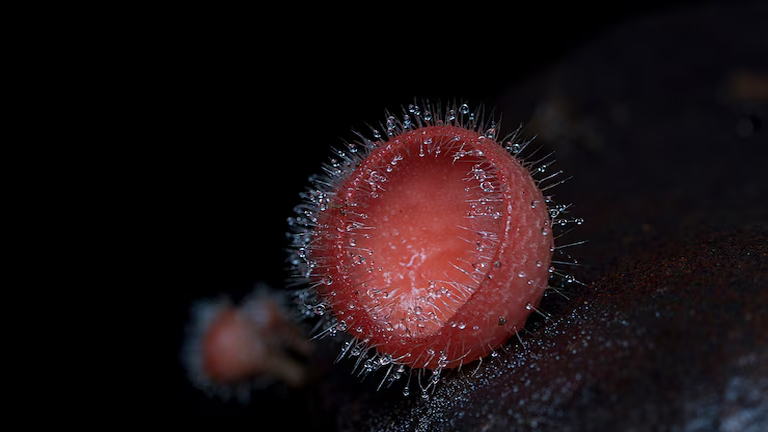Genital herpes is a prevalent sexually transmitted infection (STI) caused by the herpes simplex virus (HSV), primarily HSV-2. Affecting millions worldwide, this condition often carries significant social stigma despite being highly manageable. This definitive guide explores genital herpes symptoms and treatment, examines HSV-1 vs HSV-2 differences, provides actionable advice on how to manage herpes outbreaks, answers the critical question “Is herpes curable?”, and evaluates effective natural remedies for herpes.
HSV-1 vs HSV-2: Key Differences in Genital Herpes
Viral Characteristics and Transmission
-
HSV-2 (Primary Cause of Genital Herpes)
-
Accounts for 70-90% of this cases
-
Spread through vaginal, anal, and oral sex
-
Higher recurrence rates than HSV-1 genital infections
-
-
HSV-1 (Increasingly Common in Genital Herpes)
-
Responsible for 30-50% of new cases
-
Typically transmitted through oral-genital contact
-
Generally causes fewer recurrences than HSV-2
-
Comparative Outbreak Patterns
| Characteristic | HSV-2 Genital Herpes | HSV-1 Genital Herpes |
|---|---|---|
| First Outbreak Severity | Often severe | Typically milder |
| Recurrence Rate | 4-6 times annually | 1-2 times annually |
| Viral Shedding | 15-30% of days | 3-5% of days |
| Response to Treatment | Good | Excellent |
Symptoms and Treatment Options
Comprehensive Symptomology
Primary Outbreak (2-14 days post-exposure):
-
Multiple painful blisters/ulcers in genital/anal area
-
Flu-like symptoms (fever, body aches, swollen lymph nodes)
-
Painful urination (dysuria)
-
Vaginal or urethral discharge
Recurrent Outbreaks:
-
Prodromal symptoms (tingling, itching 24-48 hours before lesions)
-
Fewer, less painful sores
-
Shorter duration (3-7 days vs 2-4 weeks for initial outbreak)
FDA-Approved Treatment Protocols
-
Episodic Therapy
-
Valacyclovir 500mg twice daily for 3-5 days
-
Acyclovir 400mg three times daily for 5 days
-
-
Suppressive Therapy
-
Valacyclovir 500mg-1g daily
-
Reduces transmission risk by 50%
-
-
Severe Case Management
-
IV acyclovir for hospitalized patients
-
Topical lidocaine for pain relief
-
How to Manage Herpes Outbreaks
Lifestyle Adjustments to Prevent Outbreaks
-
Stress Management (Stress triggers outbreaks—try meditation, exercise)
-
Healthy Diet (Avoid high-arginine foods like nuts/chocolate; increase lysine intake)
-
Sun Protection (UV rays can trigger oral herpes—use lip balm with SPF)
-
Safe Sex Practices (Condoms/dental dams reduce transmission risk)
Natural Remedies for Herpes
Some people use home remedies to ease symptoms (though they don’t replace medical treatment):
🌿 Lysine Supplements – May reduce outbreak frequency
🍯 Manuka Honey – Soothes sores and speeds healing
❄️ Ice Packs – Numb pain and swelling
💊 Zinc Oxide Cream – Helps dry out blisters
Always consult a doctor before trying natural treatments.
Advanced Management of Herpes Outbreaks
Evidence-Based Prevention Strategies
-
Daily Antiviral Therapy: Reduces outbreak frequency by 70-80%
-
Barrier Protection: Correct condom use decreases transmission risk by 30-50%
-
Disclosure Practices: Partners should be informed before sexual contact
Lifestyle Modifications That Work
-
Stress Reduction: Proven to decrease recurrence rates
-
Sleep Optimization: <6 hours sleep increases outbreak risk
-
Dietary Adjustments:
-
Increase lysine-rich foods (fish, chicken, legumes)
-
Reduce high-arginine foods (nuts, chocolate, oats)
-
Natural Remedies for Herpes: What Actually Helps?
Clinically Studied Alternatives
-
Lemon Balm Extract: Redives healing time by 30% in clinical trials
-
Medical-Grade Honey: Shown to be as effective as acyclovir cream
-
Zinc Supplementation: 45mg/day reduces outbreak duration
Emerging Therapies Under Investigation
-
HSV-2 Vaccine Trials: Moderna mRNA vaccine in Phase II trials
-
Gene Editing: CRISPR-based approaches show promise in animal studies
-
Microbiome Therapy: Vaginal lactobacillus supplementation being studied
Is Genital Herpes Curable? The Current Reality
While no cure currently exists, the medical landscape is evolving:
-
Sterilizing Cure Research: Focus on removing latent virus from nerve ganglia
-
Functional Cure Development: Aiming for permanent viral suppression
-
Clinical Trial Participation: Over 30 active studies worldwide
Living with Genital Herpes: Long-Term Outlook
Psychological and Social Considerations
-
Disclosure Counseling: Proven to reduce transmission rates
-
Support Networks: Online communities reduce stigma impact
-
Mental Health Support: CBT shown to improve quality of life
Pregnancy and Genital Herpes
-
Risk Management: Antivirals from 36 weeks prevent neonatal transmission
-
Delivery Planning: C-section recommended for active outbreaks
-
Postpartum Care: Infant monitoring for 3 weeks
FAQs About Genital Herpes
1. Can you get genital herpes from oral sex?
Yes, HSV-1 genital herpes is increasingly common through oral-genital contact.
2. How accurate are herpes blood tests?
IgG tests are 94-97% accurate for HSV-2 after 12 weeks post-exposure.
3. Can genital herpes spread without symptoms?
Yes, asymptomatic shedding occurs 10-20% of days with HSV-2.
4. Does genital herpes increase HIV risk?
HSV-2 infection triples HIV acquisition risk due to mucosal breaks.
5. Are there any new treatments coming soon?
Pritelivir (in trials) shows 90% reduction in shedding for acyclovir-resistant HSV.
Conclusion: A Modern Approach
Genital herpes management has advanced significantly in recent years. With proper antiviral therapy, lifestyle adjustments, and emerging treatments, most individuals maintain excellent quality of life. Ongoing research promises even better solutions in the coming decade.

